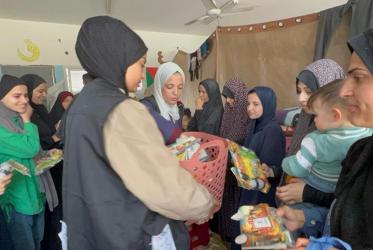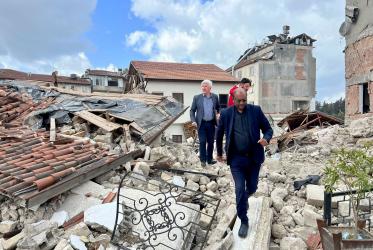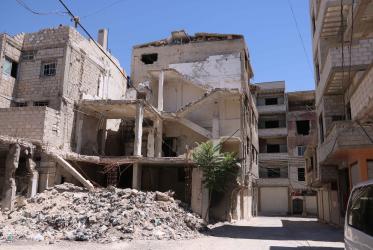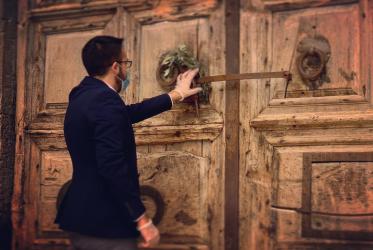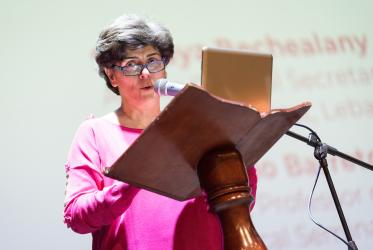Displaying 1 - 20 of 30
16 January 2024
Displaced people south of Gaza face extreme difficulty
21 December 2023
COVID-19 in conflict zones: “a crisis within another crisis”
27 November 2020
Dr Saïd Ailabouni: God is on the side of rejected, oppressed, occupied
12 September 2019
A faith-based, holistic approach to HIV and AIDS-care
13 March 2019
WCC regrets USA withdrawal from UN relief for Palestinian refugees
03 September 2018
Women in development create space for hope in Egypt
15 June 2017

